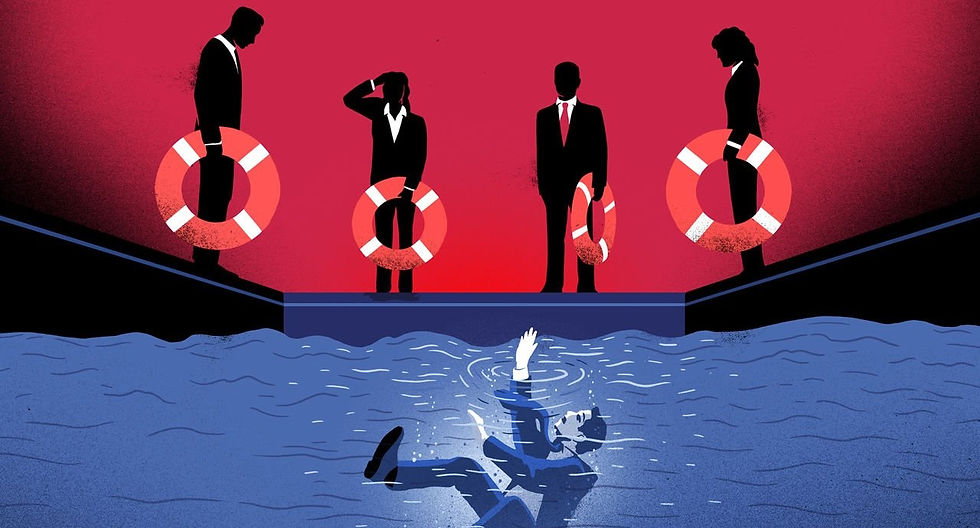The Energy Crisis and the Urgency of a Green Transition
- Gilda Liana Mazilu

- Dec 19, 2021
- 4 min read
Updated: Dec 26, 2021
The European Union (EU) witnessed a dramatic increase in energy prices starting in the summer of 2021, as did the states of India, China, the United Kingdom and the United States. The crisis arose in the context of the Covid-19 pandemic when energy use fell drastically across the globe, which in turn caused oil and gas prices to drop. When the global economy began to recover, the prices began to rise and they reached their highest ever level which has led to a crisis that is still unfolding at the time of writing. This paper will argue that the energy crisis is underlining the drawbacks of using fossil fuel-based energy, and will be making a case for a green transition. It will showcase advantages and disadvantages for both fossil fuels and renewable sources of energy.

S.T. (2021, March 4). Poor countries struggling with debt fight to get help [Illustration]. The Economist.
The main fossil fuels used to supply energy are oil, coal, and gas, which all together accounted for 84% of global energy in 2019. The use of fossil fuels results in greenhouse gas (GHG) emissions, most notably carbon dioxide, methane, and nitrous oxide. Specifically, the energy sector, dominated by fossil fuels, accounts for 73% of human-caused GHG emissions. The emissions are the main driver of climate change and global warming, with devastating consequences such as extreme weather events, rising sea levels, altering ecosystems, poverty, climate migration, food shortages, and human health issues. Furthermore, the worst climate impacts will be unavoidable if global temperatures rise above 1.5 degrees Celsius. Therefore, it becomes clear that it is essential to decrease GHG emissions, starting with a shift away from the use of fossil fuel energy.
In addition, the urgency to reduce GHG emissions is enshrined in numerous treaties and agreements bringing together most states. The Paris Agreement is one of the most important and legally binding international treaties on climate change, which came into force in 2016, with 196 signatory parties. The parties to the treaty committed to reducing their GHG emissions, in order to limit global warming to 1.5 degrees Celsius. More recently, at the 26th Conference of the Parties, states agreed to phase down fossil fuels according to the Glasgow Climate Pact. Moreover, a more regional agreement, the EU Green Deal, explicitly prioritizes the switch from fossil fuels to other sources of energy, namely renewable energy, with the aim of reducing GHG emissions by at least 55% by 2030.

European Commission. (2020). In focus: Renewable energy in Europe [Illustration]. European Commission. https://ec.europa.eu/info/news/focus-renewable-energy-europe-2020-mar-18_en
Renewable energy is generated from sources that naturally replenish themselves and never run out, such as solar, wind, hydro, and geothermal. Currently, only 11% of the global power is sourced from renewable energy. Despite its small share of global power, renewable energy has significant benefits, which can be maximized by increasing its use. For example, the greenhouse gas emissions produced by renewable energy are 25 times lower than the GHG emission generated from fossil fuel-based energy. In other words, renewable energy has a minimal impact on the climate, and it can even help to mitigate the existing climate change effects. Nonetheless, renewable energy is not without disadvantages. One of the most prominent is that it is difficult for renewable energy to generate as much power as fossil fuels. While the whole world cannot, for the time being, be 100% reliant on renewable energy, a growing number of states have made commitments to prioritising renewable energy and gradually eliminating fossil fuels. To illustrate, Sweden and Denmark aim to eliminate fossil fuels from electricity generation by 2040 and 2050 respectively. Nicaragua aimed to generate 90% of electricity from renewable sources.
In spite of the fact that the energy crisis certainly has harmful implications, it can also be used as a stimulating tool for decision makers around the world to incentivize a quicker transition from fossil fuels to renewable energy. This position has been upheld by EU officials and the president of the European Commission, Ursula Von Der Leyen stating that “The answer has to do... crucially, with speeding up the transition to clean energy." Similarly, a clean energy supplier in the UK considers that the energy crisis represents an incentive and creates a path for UK’s green energy transition.
By way of conclusion, considering the negative effects of fossil fuel-based energy on the environment are well known, the transition towards low-carbon and renewable sources of energy is flourishing but slow. The energy crisis of 2021 can be viewed as an opportunity to drive an increase in the efforts to transition more rapidly towards renewable sources of energy. However, it is up to the governments to take the initiative and implement the changes necessary to mitigate climate change.
References
Causes of climate change. (n.d.). European Commission. Retrieved November 25, 2021, from https://ec.europa.eu/clima/climate-change/causes-climate-change_en
Climate Council. (2019, January 13). 11 countries leading the charge on renewable energy. Retrieved November 25, 2021, from https://www.climatecouncil.org.au/11-countries-leading-the-charge-on-renewable-energy/
Delivering the European Green Deal. (n.d.). European Commission. Retrieved November 25, 2021, from https://ec.europa.eu/info/strategy/priorities-2019-2024/european-green-deal/delivering-european-green-deal_en
Denchak, M. (2019). Greenhouse Effect 101. NRDC. Retrieved November 25, 2021, from https://www.nrdc.org/stories/greenhouse-effect-101#causes
Euronews. (2021, October 20). Europe’s energy crisis: Continent “too reliant on gas,” says von der Leyen. Retrieved November 25, 2021, from https://www.euronews.com/2021/10/20/europe-s-energy-crisis-continent-too-reliant-on-gas-says-von-der-leyen
Hazlegreaves, S. (2021, November 5). Energy crisis: A perfect storm for the UK’s green energy transition. Open Access Government. Retrieved November 25, 2021, from https://www.openaccessgovernment.org/energy-crisis-a-perfect-storm-for-the-uks-green-energy-transition/123779/
Hill, A. C. (2021, November 15). What COP26 Did and Didn’t Accomplish. Council on Foreign Relations. Retrieved November 25, 2021, from https://www.cfr.org/in-brief/cop26-climate-outcomes-successes-failures-glasgow
The Paris Agreement. (n.d.). United Nations Climate Change. Retrieved November 25, 2021, from https://unfccc.int/process-and-meetings/the-paris-agreement/the-paris-agreement
Ritchie, H. (2020, November 28). Energy mix. Our World in Data. https://ourworldindata.org/energy-mix
Tyndall, C. (2021, October 20). As it happens: the global energy crisis. Power Technology. https://www.power-technology.com/features/global-energy-crisis-timeline/
United Nations. (2021). Theme Report on Energy Access. https://www.un.org/ohrlls/sites/www.un.org.ohrlls/files/technical_working_group_1_energy_access_report_2021.pdf







https://www.epsxf.com ; https://www.yyeps.com; https://epsxf.com; https://yyeps.com; https://eps-machine.net; https://epp-machine.com; https://eptu-machine.com; https://eps-machine.top; https://epp-eptu-machine.com; https://sw-eps.com; EPS Machine EPS Cutting Machine; EPP MachineEps Raw Material; EPS MachineEPS Mould; EPP MachineEPS Recycling System; EPS MachineEPS Block Molding Machine; EPP MachineEPS Shape Moulding Machine; EPP MachineAging Silo for EPS Machine; EPS Machine; ETPU MachineEPS and EPP Heating Room; ETPU Machine; ETPU MachineAging Silo for EPS Machine; EPP Machine; EPP Machine EPP Shape Moulding Machine; EPS MachineEPS and EPP Heating Room